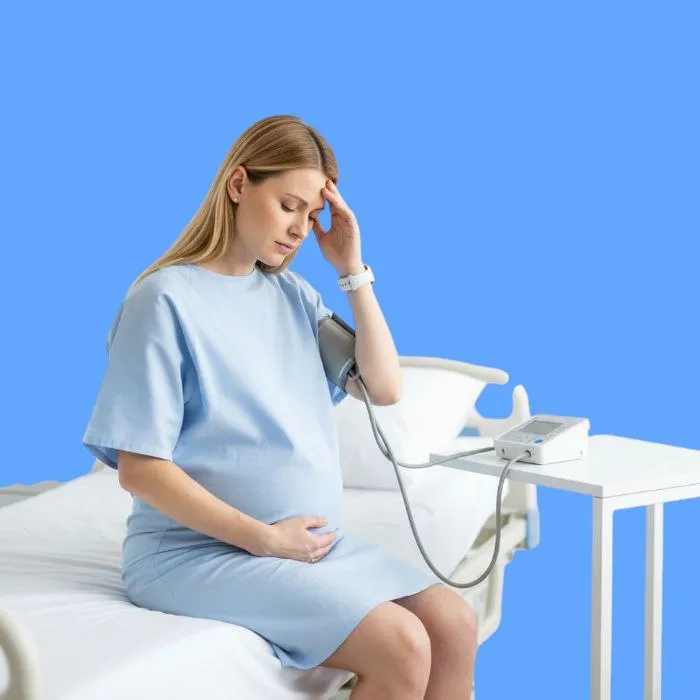What is Preeclampsia?
Preeclampsia is a serious pregnancy complication that usually occurs in the third trimester.
It is characterized by high blood pressure and protein in the urine, which can lead to serious health risks if left untreated.
This condition requires close monitoring to protect the mother and baby from possible complications.
What are the Causes of Preeclampsia?
There are several common causes of preeclampsia, including:
- Chronic high blood pressure before pregnancy.
- First-time pregnancy.
- Family history of preeclampsia.
- Twin or multiple pregnancies.
- Being overweight or obese before pregnancy.
What are the Common Symptoms of Preeclampsia?
Common symptoms pregnant women may experience include:
- Sudden high blood pressure.
- Swelling of the face, hands, or feet.
- Severe and persistent headache.
- Blurred or weak vision.
- Pain in the upper abdomen.
When Should You See a Doctor?
You should see a doctor in the following situations:
- High blood pressure during pregnancy.
- Sudden swelling or rapid weight gain.
- Severe headache that doesn't go away with rest.
- Vision problems or frequent dizziness.
- Sharp pain in the stomach or liver area.
How is Preeclampsia Diagnosed?
Preeclampsia is diagnosed through several medical tests Doctors rely on the following steps:
- Regular blood pressure measurement.
- Urine tests to check for protein.
- Blood tests to evaluate liver and kidney function.
- Ultrasound scans to monitor baby growth.
How is Preeclampsia Treated?
Treatment depends on the severity of the condition and may include:
- Complete rest and stress reduction.
- Blood pressure medications prescribed by the doctor.
- Continuous medical monitoring for both mother and baby.
- Early delivery in severe cases to protect both lives.
- A healthy diet low in salt and fat.
Can Preeclampsia Be Cured?

Preeclampsia usually resolves after delivery but requires close medical follow-up.
Some symptoms may persist for a short time after birth.
Early treatment ensures recovery without serious complications.
Following medical advice reduces the risk of recurrence in future pregnancies.
How to Prevent Preeclampsia?
Here are some effective prevention tips:
- Keep blood pressure within a healthy range.
- Limit intake of salty and processed foods.
- Engage in light physical activity regularly.
- Attend all prenatal checkups.
- Drink enough water every day.
What are the Possible Complications of Preeclampsia?
Untreated preeclampsia may lead to:
- Organ failure or blood poisoning.
- Poor fetal growth.
- Placental abruption.
- Premature birth.
- Risk of maternal or fetal death in severe cases.
Common Questions About Preeclampsia
Can preeclampsia occur after birth?
Yes, in rare cases it can appear a few days after delivery.
Is preeclampsia hereditary?
It may be hereditary if the mother or sister had it before.
Can preeclampsia cause infertility?
No, but it may temporarily affect fertility if not treated early.
Does it affect the baby?
Yes, it can lead to growth issues or premature birth if untreated.
Summary article
Preeclampsia is a dangerous but treatable condition if detected early.
Awareness of symptoms and regular medical follow-up are key to prevention and control.
Rest, manage stress, and follow a healthy lifestyle to protect yourself and your baby.